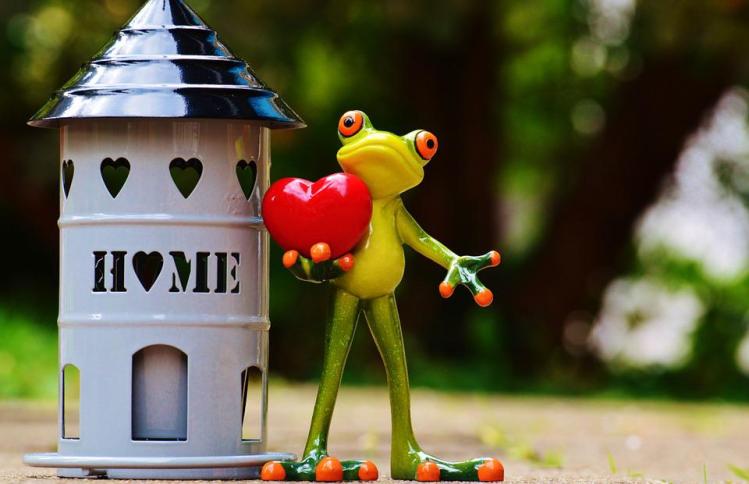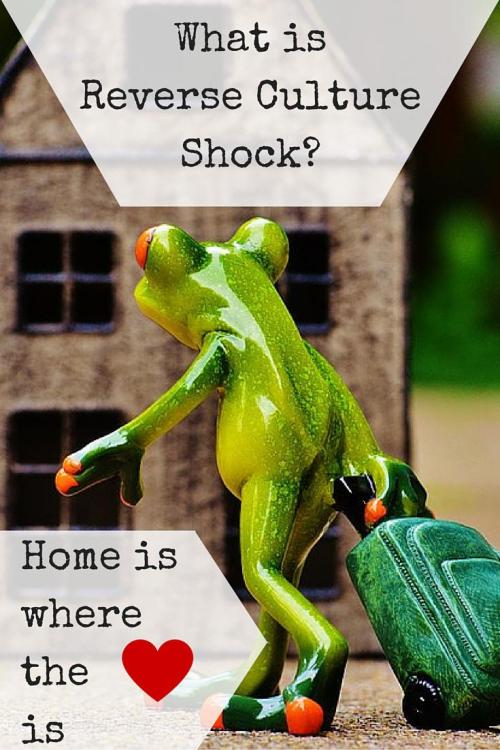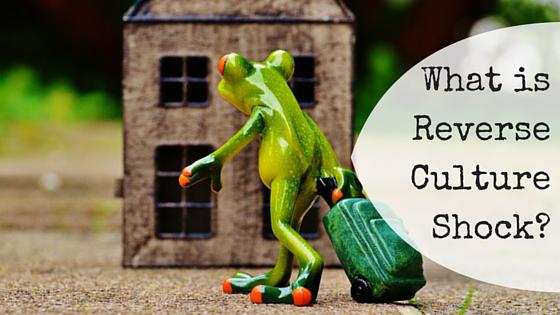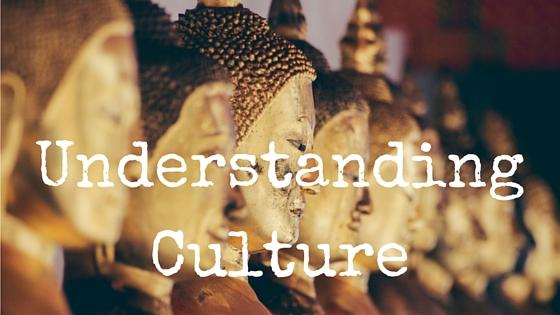What Is Reverse Culture Shock?
While a lot of people are familiar and expect to experience culture shock when they go abroad, most people have never heard of Reverse Culture Shock. It doesn’t really matter if you traveled extensively, lived abroad as an expat or did a semester or year abroad in university, when you come home, you will most likely experience some sort of Reverse Culture Shock. So what is it, you probably ask? While the symptoms of Reverse Culture Shock can be different for everyone, most people experience a severe case of the post-travel-blues, a feeling of being lost and even homesickness to your former host country. When you return home, you will most likely mourn your loss of independence and adventure. Reverse Culture Shock is an adjustment of expectations with reality. While you traveled and lived abroad, your world view has been jumbled and changed, and once you return, you’ll have to learn how your new You will fit into the your old world. To complicate matters even more, your old world wasn’t stagnant while you were out and about either and changed as well.
I have lived abroad for 10 years now and experienced Reverse Culture Shock a few times. Later this year, I am planning to move back to Germany and returning “home”. While I am excited to be back in Germany and I am looking forward to being close to family and friends after such a long time, I am also nervous about how I will re-integrate. Did I romanticize Germany too much and think that all my problems (not that I have many) will evaporate into thin air just because I’m suddenly in Germany? Will I fit back in with my fellow Germans or am I already to Americanized? Will I be a stranger in my own country, someone who never fits in anywhere? I don’t know yet, but I am sure I’ll be sharing a few blog posts with you about that after my move 🙂 In the meantime, I am sharing some of the things that you might encounter as well, when you move back home after traveling or living abroad for a while.
What makes coming home so hard?
There are many factors why coming home from extended periods abroad can be a hard adjustment and I will share a few of them with you here. Knowing that you will most likely experience at least some of these feelings might help you better understand them and work through them as you adjust to your old/new home.

You’re nothing special anymore
Living as a foreigner in another country puts you by default into the minority and in some cultures more than others, you might stick out like a sore thumb. While it can be annoying to have hundreds of Chinese people ask you to take a picture with them, random people stare and point at you or look up on you in awe, it can be quite an adjustment to not be anything special anymore.
You are also no longer the cool guy, who can nonchalantly mention to the people back home that you live in an exotic dream location and are just home for the holidays. Yes, it is a bit pretentious, but honestly, we all feel a bit like Jason Bourne when we show off our stamped passports and visas, don’t we? If you’ve visited home in between your travels or when you lived abroad, you turned into the center of attention. Everybody made time and went out of their way to see you and spend those precious few days with you. But when you return home for good, you might not see your friends for a couple of days or even weeks, because there is no need to rush it. Don’t take it personal, it is just the way it is. One time, I went home for 10 days and saw most of my friends 2-3 times in that time period. More often than the time I was home for 6 weeks.
The grass is greener…
While you were traveling or living abroad, you missed home. Everyone does. At least sometimes. You missed your family and friends of course, but also your favorite dish or watching a football game with your mates at your local pub. But when you return home, your perspective changes. How can the local pub hold up against the swanky bars in Dubai, or the cool vibe of a beach bar in Thailand?
You’ll also pick and choose what you liked better in each country. “Oh, in the US, it was so easy to get car insurance. And so much cheaper….” Yada yada… but then you forget what a hassle it was to rent an apartment or apply for a credit card without a credit history. In general I think it is a good human trait that people tend to forget the negative much more quickly than the positive, but it also turns us into cherry pickers who try pick the best from each country. But unless you start your own country, which I don’t endorse, you’ll have to stick to the rules and amenities you have in the place you live in.
You’ve tasted the real thing
How can your shabby little Sushi place back home hold up to eating fresh Sea Urchin in Tokyo? It is just not fair. But once you’ve had the real deal, it is hard to enjoy or even recognize “Panda Express” as a Chinese restaurant. So make it a challenge. Find the most authentic restaurant in your town, or even better, learn to cook your favorite dishes from your time abroad yourself.
The mean part of Reverse Culture Shock is, that it might even take away the things you loved before you left. After eating Pad Thai in Bangkok, your old favorite Thai restaurant will most likely not live up to your standards anymore.
Nobody wants to listen to your stories
At least not as much as you would like to talk about them. The first week, your friends and family will cut you some slack and even encourage you to tell them about your trip. But after just a few days, you will see their eyes glance over when you tell them about yet another one of your adventures or pull out another flash drive full of pictures. So to avoid turning into a total bore, try to find a different outlet for your travel stories. Start a blog, give presentations at local schools, or write a book. And please, please always sort through your pictures before you share them and create a highlights slideshow. Nobody, not even your mom, wants to sit through 3000 shaky and blurry party pictures!
Time doesn’t stop at home
 When you return home, you’ll expect everything to be the way the day you left. Even if you consciously know that things have changed, it will still bum you out to see that your favorite bar has closed, your closest friend has moved away, streets look different and you see the changes for the first time all at once. People’s lives won’t stand still, just because you are not there. They will replace the time they spent with you with something or somebody else. They will make new friends or find new hobbies, finish school, change careers, and live their life. For them, the change is gradual, but for you, you get a double wham as soon as you step off the plane. Be prepared for it and it will be a bit easier to cope with.
When you return home, you’ll expect everything to be the way the day you left. Even if you consciously know that things have changed, it will still bum you out to see that your favorite bar has closed, your closest friend has moved away, streets look different and you see the changes for the first time all at once. People’s lives won’t stand still, just because you are not there. They will replace the time they spent with you with something or somebody else. They will make new friends or find new hobbies, finish school, change careers, and live their life. For them, the change is gradual, but for you, you get a double wham as soon as you step off the plane. Be prepared for it and it will be a bit easier to cope with.
And even though you might be bubbling over with stories to share about your travels, make it a point to ask your friends about what has happened in their lives. As their stories pale in comparison to your stories (at least in their mind), you’ll have to make an effort to draw them out. Ask them to explain the new insider joke they have or share the most embarrassing party stories WITHOUT trumping them by throwing in your “That reminds me of that time in Bangkok in that bar on KSR…”.
You’ve changed
Obviously. Everybody does, but being exposed to so many new things and experiencing new countries and cultures put your personal development on overdrive. Going out to see the world gave you a new perspective and turned you into a different person. You formed opinions on things you had no input on a few months ago, discovered new sides in you and maybe a new talent. Your goals and ideals have changed and sometimes you feel your whole life plan has been turned on its head.
While you used to see only one path for your life, you will now see too many. You might have gone abroad as a career-oriented expat, you might return as nomadic wanderer. All those new experiences you had, the people you’ve met and the things you have learned will have an impact on your future life. It might be hard to follow through with those revelations you had while traveling, once you are back home and have to answer to your friends and family. While it is easy to convince your fellow backpacker friends that you will continue to live an alternative lifestyle for the rest of your life, it might be hard to convince your parents, partner or friends that this is actually a viable way of spending your life.
People will think you are nuts
Like I already said, it is easy to live a low budget backpacker lifestyle when you are surrounded by people who do the same. But once you are back home, you’ll have all the temptations of a “regular” life again. You might feel jealous of your friend’s nice apartment or car. People will look at you funny if you have all of your belongings in a bag over your shoulders and even your closest friends and family will ask you when you will start to grow up or when you will wake up and join the real life. For most of your friends and family, you are the only one they know closely, that has lived or traveled abroad extensively, while you lived among people just like you. You have seen countless examples of people who successfully made an alternative lifestyle work for them, yet your friends and family probably have not. Even if their nagging is driving you nuts, remember that they just never heard of this path as a viable option and they only want the best for you.
How long will it take to get over Reverse Culture Shock?
That my friend, will depend entirely on you. How fast will you either re-integrate or make your alternative life path a success? How long until you don’t start every sentence with “But in Thailand…”? While I don’t recommend that you pretend nothing has changed since you left, I also don’t think it is wise to butt your heads with your friends and family about your newfound wisdom and epiphany of how to live your life constantly.
IMPORTANT: Many of us who return home are seen as know-it-all, judgmental snobs, even by their closest friends and family. Stop judging them! Yes. you might not understand how they could choose a new, expensive car over a 6 month holiday or question their drive to reach their career goals rather than enjoying their free time. You have to know that people have a right to live their life as they want to and deserve not to be judged for their choices.
Reverse Culture Shock is something that you will most likely experience when you return home and it is much easier to change your experience, when you know why this is happening to you. So be prepared and try to understand the point of view of your friends and family as well. Your transition will be much easier, when you have them on your side.
Have you returned home from extensive travels or living/studying abroad and experienced Reverse Culture Shock? I’d love to hear about your experience in the comments.







Over a year since I came back “home”, and the only thing I can think of is how to move back abroad.
I guess I don’t travel for such a long period that I get the reverse culture shock – does jet lag count? 🙂
I lived in UK for a year (twice), each time I returned to the USA I experienced reverse culture shock. It has been 15 years since I returned the second time, and I am still not over the culture shock. I changed. The country changed. Nothing is quite the way I remember it.
Loved this… I totally agree about doing the highlights post as it made it easier to show the photos without it taking forever!
Yes !! “When you return home, you will most likely mourn your loss of independence and adventure” Always 🙁
What an excellent article! I’ve been through reverse culture shock and it’s hard to come to terms with. Nicely written!
Even only being on a 2 week trip I have changed! Real life at home seems boring and I constantly dream of the next big adventure. Sometimes I think we blog to keep remembering the travels and to keep them alive!
Great article and insights! Thanks for sharing!
My longest trips have been for about six weeks at a time so I only suffer from some symptoms. Always get post vacation depression and can’t understand why my friends want to waste money on things other than travel. I enjoyed reading your thoughts.
Maria, I absolutely love it! I am afraid I will have to face the reverse culture shock soon… at least for some time and it makes be uuffff scared !
you explained it so well, love it. Sharing the love!
So true Maria ! Loved the article and have certainly experienced this after long spells abroad. First time after working in Nigeria and again after leaving Hong Kong. I suppose living abroad can offer such an exiting lifestyle that it just isn’t the same when you return home (UK in my case). Went back to UK inn 2004 but didn’t really fit in so last year we returned to Hong Kong where we now live for the foreseeable future – a decision we don’t regret ! Happy travels !
I love this article, thank you so much for sharing! I’ve been trough it once and yes, for me the grass is definitely always greener on the other side 🙂 It’s crazy how much we change when we live abroad and how we fantasize about our perfect home country… once back home we realize that “perfect” doesn’t exist.
I really enjoyed reading this! I just came back home after living in the States for six years. I am still struggling adjusting to my own country, everything has changed and I am still not ok after two months here.
Very informative, I had lived in Japan for three years before returning to the U.S.A. to visit family. I noticed many things you mentioned in your article, such as my son took us to his favorite Japanese restaurant and I could hardly digest what they called Sushi. I also noticed my families world view was so different then mine. My mom was so worried about our move to Japan because of what she digested from the news. It was quite any eye opener and I realized prior to the move I held the same opinions. It is now six years since I have been back to the U.S.A. and I really do not know what to expect on my next visit.